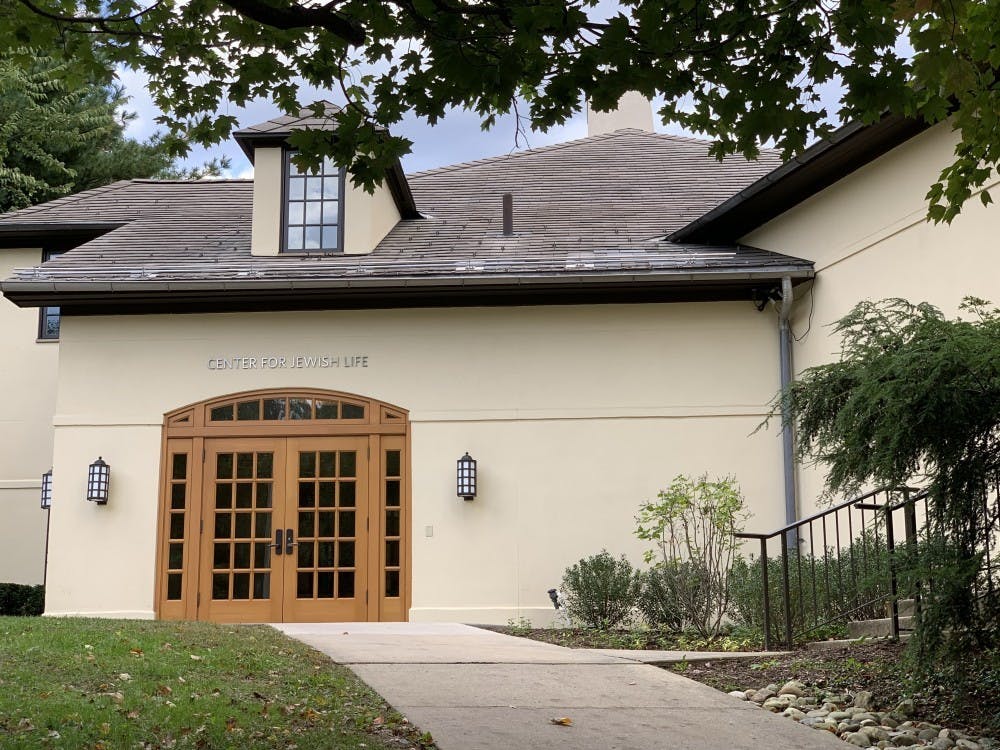One of Tower’s resident ECAs e-mailed an announcement of the upcoming event, complete with statistics that are supposed to be revealing (“81 percent of 10-year-olds fear being fat”). Some Tower members took issue with the event and respond with typical fat jokes (Q: How is fucking a fat chick like riding a moped? A: It’s fun until somebody sees you). Other Tower members got offended and tried to correct the ways of their less-enlightened peers. Toolishness and hilarity ensued.
As debate heated up among those around me, I decided to do my own research to allow me to get to the bottom of the issue. For one, it turns out that the choice of name for the event was incredibly unfortunate. No Fat Talk Week was never meant to encourage fatness, but rather to discourage any of negative body-image talk in order to prevent under-eating. Organizations at other schools title similar events Love Your Body Week, a name that better captures the campaign’s attitude. No Fat Talk Week sounds like a really bad suggestion from one of those self-help manuals that instruct you to be happy at all costs, despite commentary from family, friends, colleagues or health specialists.
Judging from comment boards and general conversation, it seems that that many people have been misled into thinking that the ECAs sought to systematically eliminate all conversation related to obesity, dieting, calorie intake, lack of calorie intake, fat people, really fat people, treadmills or Lean Cuisine. I have no doubt that the title of the campaign contributed to this erroneous thinking. It is also possible that the misconception of the week as a call to eat was fueled by the USG simultaneously trucking in a ton of ice cream (literally) for the unrelated FrostFest event on Friday.
With the “fat talk” misconception aside, people have still brought up other issues. Should we even be discouraging negative body talk? Won’t it only encourage overweight people to eat more if we ban all discussion that can be deemed “negative,” which invariably includes the vast majority of overweight talk? That is, is there really a nice, positive way to discuss weight with someone who is fat enough to have his/her own area code?
In her column today, Miriam Geronimus discusses the best ways to talk about weight with those struggling with obesity. But the discussion at Princeton is not about obesity, it is about anorexia. Yes, there is an obesity epidemic in the United States, yet it is largely contained within a demographic that is not widely represented at Princeton (mainly the poor and less educated). I think anyone would agree that there are not that many obese people on campus. Naturally, there are some who are overweight, but the proportion of these individuals at Princeton comes nowhere to close the national average. The “no fat talk” campaign has nothing to do with making fat people feel better, because, to put it bluntly, there aren’t that many fat people to console. Instead, it is intended to reduce the anxiety anorexics have from fear of being fat.
Some detractors also claim that “no fat talk” is the wrong approach, that we should openly address the issue, essentially reassuring anorexics that they are, indeed, not overweight — rather than discouraging body talk as a whole. However, clinical data indicate that this is actually a counterproductive approach. Friends and family of anorexics must be careful not to comment on their appearance in any manner, because even a positive comment can be interpreted incorrectly and actually reinforce the disorder. For example, an innocuous remark like “You’re looking great!” can be interpreted by the anorexic to mean “I look better than before because I haven’t been eating; I better keep it up!” The goal in supporting those with eating disorders is not to address body concerns directly, but to reduce the sufferer’s fixation on image as a whole. No Fat Talk Week seems to share this particular objective.
That being said, I hope that the outcome of the campaign was increased support for sufferers of anorexia, rather than greater stigmatization and censure of everyday rhetoric. There are enough issues already that have to be treated with kid gloves out of fear of offending those who feel strongly about them. Instead of delving into the muddled realm of social engineering, those who care about eating disorders should spend their time and effort working one-on-one with the sufferers, rather than engaging in highly publicized but often questionable campaigns of community awareness. In all, I disagree with the ECAs’ methodology, but their message, once one stops to actually listen to it, seems clear and relevant to the Princeton student body.
David Mendelsohn is a psychology major from Rockville Centre, N.Y. He can be reached at dmendels@princeton.edu.








